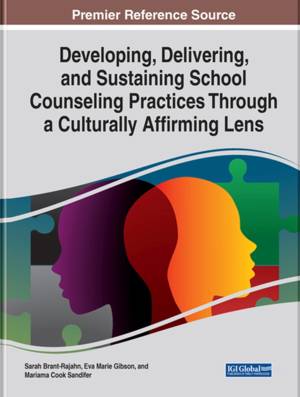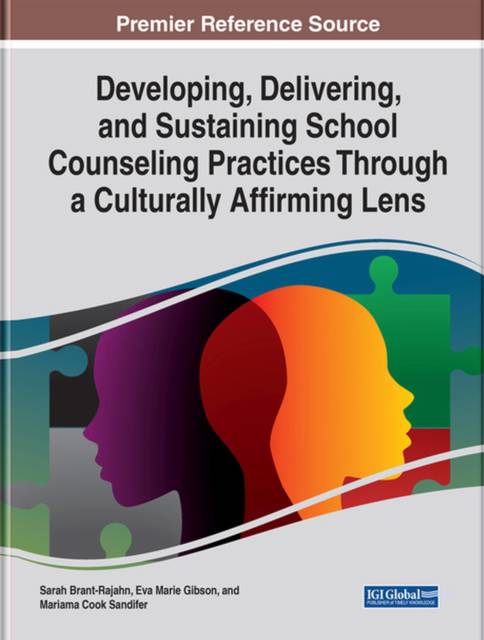
- Afhalen na 1 uur in een winkel met voorraad
- Gratis thuislevering in België vanaf € 30
- Ruim aanbod met 7 miljoen producten
- Afhalen na 1 uur in een winkel met voorraad
- Gratis thuislevering in België vanaf € 30
- Ruim aanbod met 7 miljoen producten
Zoeken
Developing, Delivering, and Sustaining School Counseling Practices Through a Culturally Affirming Lens
€ 325,45
+ 650 punten
Omschrijving
Systemic oppression continues to disenfranchise students at the intersections of race, ethnicity, gender identity, sexual orientation, immigrant status, religion, ableism, and economic status. Because of this, school counselors are called to function as advocates and change agents, but often find themselves underprepared to address these oppressive systems in schools. It is vital that school counselors are provided resources that enable them to increase their preparedness and allow them to address oppressive practices within schools as well as work with diverse populations using culturally affirming and antiracist practices. Developing, Delivering, and Sustaining School Counseling Practices Through a Culturally Affirming Lens informs culturally affirming and antiracist professional practice and advocacy work by school counselors. It serves as a learning tool that better prepares school counselors to address the needs of marginalized students and work as effective change agents to disrupt systemic oppression in school settings. Covering topics such as professional identity, racial trauma, and social justice, this book serves as a dynamic resource for school counselor educators, school counselors-in-training, school counselors, directors, supervisors, district leaders and administration, researchers, and academicians as they implement antiracist, social justice, and culturally affirming practices in school settings and academia.
Specificaties
Betrokkenen
- Uitgeverij:
Inhoud
- Aantal bladzijden:
- 416
- Taal:
- Engels
- Reeks:
Eigenschappen
- Productcode (EAN):
- 9781799895145
- Verschijningsdatum:
- 6/05/2022
- Uitvoering:
- Hardcover
- Formaat:
- Genaaid
- Afmetingen:
- 216 mm x 279 mm
- Gewicht:
- 1247 g

Alleen bij Standaard Boekhandel
+ 650 punten op je klantenkaart van Standaard Boekhandel
Beoordelingen
We publiceren alleen reviews die voldoen aan de voorwaarden voor reviews. Bekijk onze voorwaarden voor reviews.






